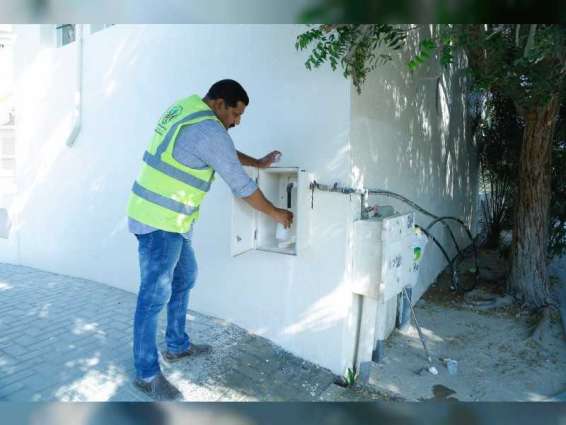SHARJAH, (Pakistan Point News - 30th Oct, 2021) Sharjah Electricity, Water and Gas Authority (SEWA) confirmed that there is strict control over all stages of water production until it reaches consumers, taking water samples of water whether in the water network, producing stations, and transmission and distribution lines, to conduct the necessary analyses around the clock, in accordance with international requirements.
SEWA’s Department of Water and Desalination Plants revealed that about 6,263 samples were examined in the water quality laboratory during the first nine months of 2021.
Samples were collected from distribution and transmission lines samples, tanks in buildings, health centres, within the framework of SEWA keenness to provide high quality potable water according to the standards of the World Health Organisation.
Kholoud Al Naboodah, Director of the Water Quality Department, confirmed that SEWA harnesses its technical and operational capabilities to provide high quality drinking water according to the standards of the World Health Organisation, and SEWA is always keen to keep pace with scientific progress in water testing, to obtain high quality water.
Al Naboodah added that the quality of potable water is constantly controlled by monitoring different microbiological and chemical parameters, in order to preserve the health of the public.
She explained that the Water Quality Laboratory is one of SEWA technical laboratories, as SEWA has 7 technical laboratories to monitor and maintain water quality from desalination to subscribers through a network of more than 3500 km, in addition, all laboratories are equipped with state-of-the-art machines and qualified staff to monitor and ensure water quality and freshness in all areas of the Emirate of Sharjah around the clock.
Al Naboodah concluded that SEWA is keen to obtain samples of water pumped into the water network, to be tested and to ensure its suitability for human consumption. Samples are selected from 60 different points on the network specially equipped for sample collection, in addition to examining periodic samples from water-producing stations, wells, distribution and transportation lines; and monitoring the cleanliness of tanks in buildings to monitor the quality of water in the network on an ongoing basis.




